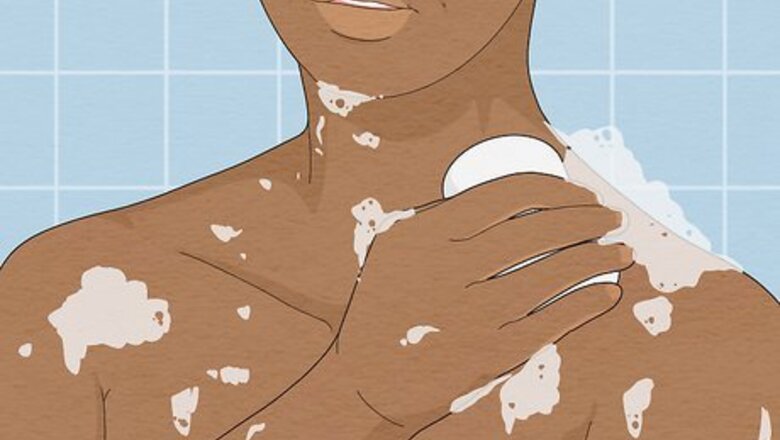
views
- Wash your body and wear clinical strength antiperspirant to get rid of body odors and stop sweat. Put on clean, breathable clothes to keep you from sweating.
- Limit strong-smelling and spicy foods, alcohol, and caffeine in your diet to help you sweat less and reduce body odor.
- See a doctor about your body odor if the smell suddenly changes, if you have skin irritation, or if you’re excessively sweating even when you aren’t active.
Ways to Get Rid of Onion-Smelling Body Odor
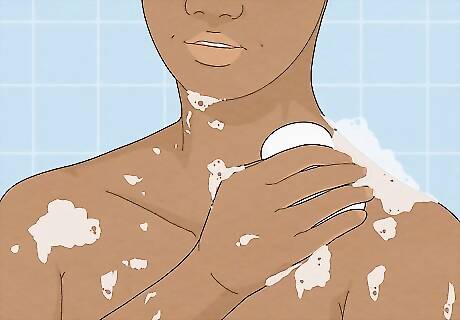
Wash your body with antibacterial soap daily. Antibacterial soap kills odor-causing bacteria. Take a shower or bath every day to clean any odor-causing bacteria on your skin. Lather an antibacterial soap on a washcloth and gently scrub your body. Take a little extra time to clean areas where you sweat the most, like your armpits, feet, and groin. Dry yourself off thoroughly after you finish bathing. Trapped moisture on your skin can make odor-causing bacteria grow faster or lead to skin inflammation.
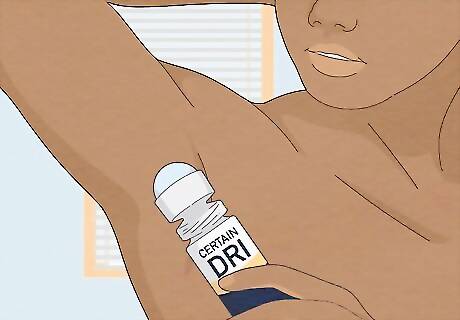
Apply clinical strength antiperspirant. Antiperspirants plug your sweat glands so your underarms stay dry, and clinical-strength antiperspirants are extra effective. If you want to get rid of the onion smell in your armpits, apply antiperspirant right after you shower. Be sure to apply the antiperspirant every day to control your underarm odors.
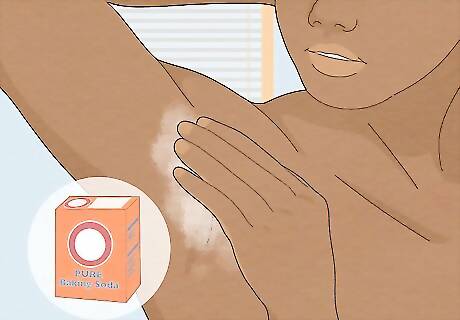
Dust baking soda under your arms to absorb odors. If you want to naturally get rid of body odor, sprinkle a little baking soda into your hand and apply it under your arms. The baking soda will help absorb any moisture and odors throughout the day so you don’t detect any onion smell.

Wear clean clothes each day. When you get dressed in the morning, change into clothes that have been washed and smell fresh so you don’t have any residual odors. If you’ve already started to sweat and your clothes feel damp, switch into clean, dry clothes to prevent body odors from building up on your skin. Remove body odors from your clothes by making a paste with baking soda and water and applying it to smelly spots. Let the paste dry before brushing it away.
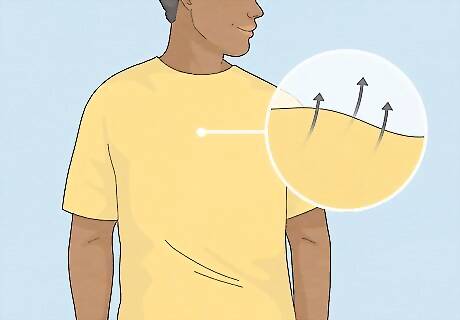
Wear breathable fabrics. Pick clothes that are made from natural fabrics, like cotton, wool, or silk, since they allow air to pass through and cool you down. If you’re exercising or staying active, choose moisture-wicking clothes that pull sweat away from your skin and prevent body odor from forming. If you’re trying to get rid of an onion smell down near your groin, avoid wearing lycra or spandex undergarments as well as yoga pants since they could trap moisture and bacteria that cause odor.
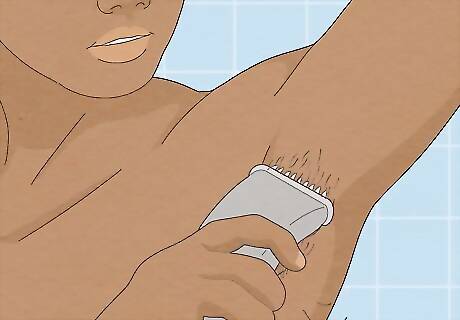
Shave excess body hair. Sweat and bacteria can get trapped in your body hair, which could make body odors smell worse. If you’re shaving your underarms, start by trimming long hair with an electric razor. Then, lather body wash or shaving cream on your skin and slowly use a safety razor to remove the rest of your underarm hair. Be careful if you plan on shaving your pubic hair since you could accidentally cut yourself and the hair growing back in could feel itchy or become ingrown. Trim with a pair of scissors instead if you don’t want to completely remove your pubic hair.
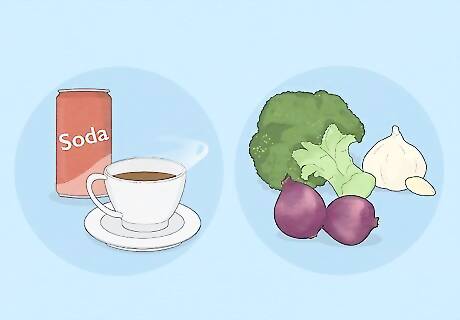
Limit caffeine and strong-smelling foods. Caffeinated drinks like coffee or soda could make you sweat more, which may make onion-smelling body odor more noticeable. Foods like onions, garlic, curry, cabbage, broccoli, nuts, and potatoes break down in your body and could make your body odor have a stronger scent than normal. Try eliminating these foods from your diet to see if it makes body odor less noticeable. Alcoholic beverages can also stimulate sweating as your body breaks them down, so try to cut back on drinking.

Practice relaxation techniques. If you’re sweating because you feel anxious or stressed, take a deep breath in, hold it for a few seconds, and then exhale to start calming yourself down. Make it a regular habit to practice yoga or do mindful meditation to help you feel more in control over your mood so stressful situations don’t make you sweat.
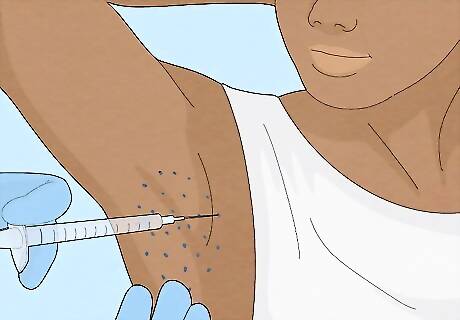
Get Botox injections to help control excessive sweating. Botox blocks the nerve signals in your sweat glands and prevents perspiration from forming around the injection sites. Talk to a doctor or a dermatologist to see if Botox is a good option for you. When you go in for a Botox treatment, your doctor will inject the Botox into your skin and your sweating will be under control within 3–4 days. Botox lasts around 6 months, so you’ll have to continue getting regular injections to manage your sweat and body odor.
What causes onion-smelling sweat?

Bacteria mixing with sweat While sweat is actually odorless, it quickly starts breaking down the bacteria living on your skin. As the bacteria continue to break down, they release chemicals that make unpleasant odors, known as “bromhidrosis.” The odor usually has a noticeable smell like onions, garlic, or rancid cheese. Body odors may vary from person to person depending on the bacteria living on your skin. While some people naturally have strong body odor, others may not notice any smell when they sweat.
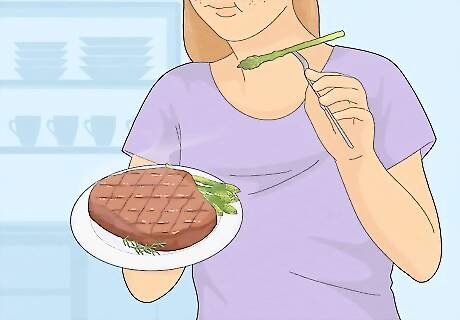
Foods in your diet Strong-smelling foods like onions, garlic, Brussels sprouts, asparagus, and curry powder create more odors when they break down inside your body. Alcohol and caffeine may also make you sweat and give you noticeable body odors. These foods create sulfur compounds as you digest them and release an unpleasant odor when you sweat.
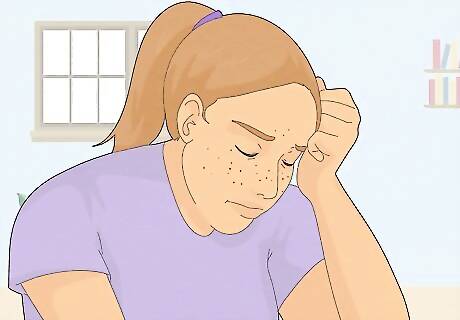
Stress Whenever you’re stressed, afraid, or anxious, the apocrine glands in your underarms and groin open up and release sweat. Since you sweat more when you’re stressed, it’s more likely to break down bacteria already on your skin and create an onion smell. When you’re stressed, your body releases cortisol and adrenaline that make body odor more noticeable.
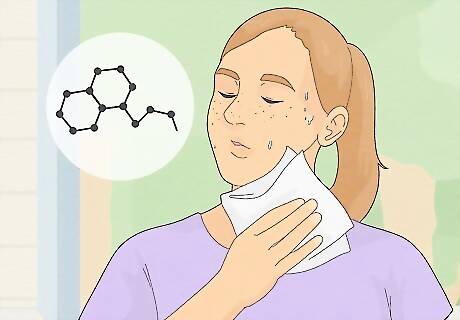
Hormonal changes If you’re going through puberty, menstruating, or dealing with menopause, your hormone levels may fluctuate and affect your ability to metabolize trimethylamines that create unpleasant odors. The change in hormones could make your body smell a little different at certain times of the month until the levels go back to normal.
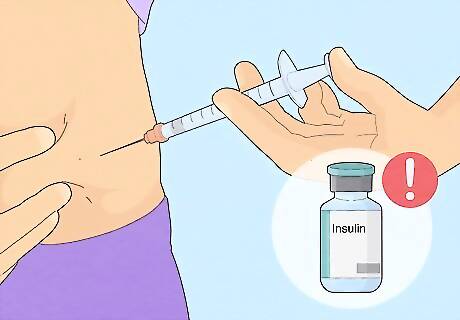
Diabetes If you have diabetes and don’t receive enough insulin, you may develop diabetic ketoacidosis (DKA) that releases acids into your body. These acids may cause a sweet or metallic odor when you sweat. Other symptoms may include increased thirst, frequent urination, fast breathing, and muscle stiffness. DKA can be dangerous if the acid levels are left to build up in your body, so call a doctor and seek medical attention as soon as you suspect it.
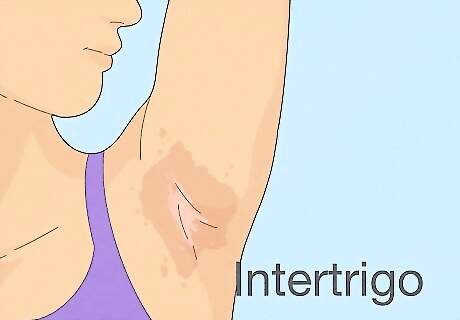
Skin infections Because skin infections are caused by bacteria, they may release unpleasant odors that could have an onion smell. Along with body odor, you may also experience inflammation or a rash from a skin infection. Some of the most common infections that cause odors include: Intertrigo, which is a rash caused by skin rubbing together that has a pungent discharge Erythrasma, which are small scaly patches that occur where skin rubs together, like your underarms or groin Trichomycosis axillaris, which causes odors and creates yellow or reddish buildup under your arms
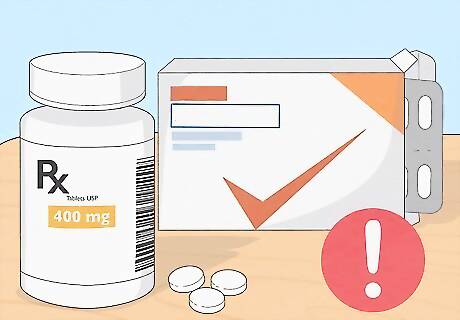
Medications Some medications, like antidepressants, nonsteroidal anti-inflammatories, blood pressure medication, and diabetes medicine all have side effects that could increase how much you sweat. When the sweat combines with the bacteria already on your skin, you may notice an unpleasant odor.
When to See a Doctor
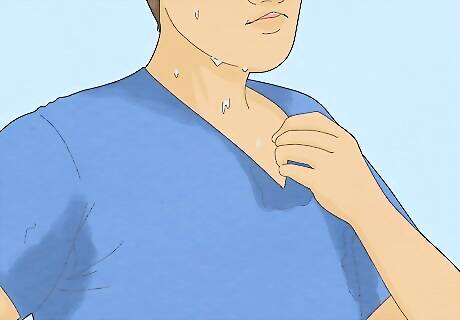
If you sweat excessively for no reason If you sweat while you’re sleeping or if sweat soaks through your clothes while you’re just relaxing, then it may be a sign that you have hyperhidrosis, or overactive sweat glands. It may also be a sign of a more serious underlying condition, such as metabolic issues, thyroid conditions, or a heart attack. Talk to your doctor about how frequently you’re sweating, and they may be able to prescribe medications or recommend lifestyle changes to treat the condition.
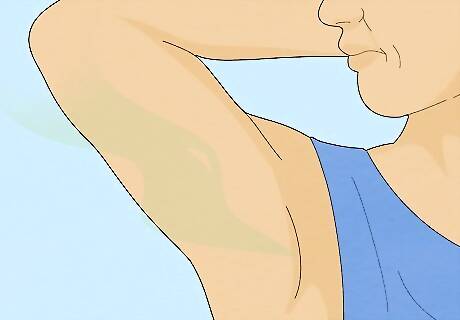
If your body odor changes If your body odor suddenly smells different than it has in the past, it could be a sign of a new skin infection or an underlying health condition. Contact your doctor and try to describe the odor as best as you can. Schedule an appointment so your doctor can run tests and determine what caused the change. That way, you can start treating it right away.
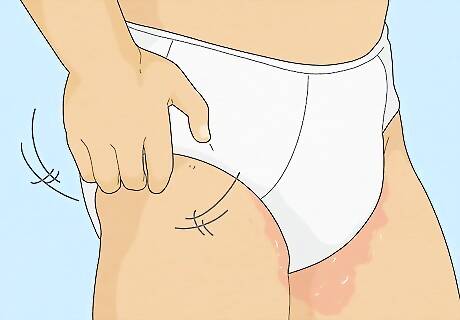
If you notice discharge, burning, or itching If you’re trying to get rid of an onion smell down near your groin, be aware of any colored discharge or burning, itching sensations you feel since they could be signs of infection. Tell your doctor that all of the symptoms you’re feeling and make an appointment with them to diagnose the issue.




















Comments
0 comment